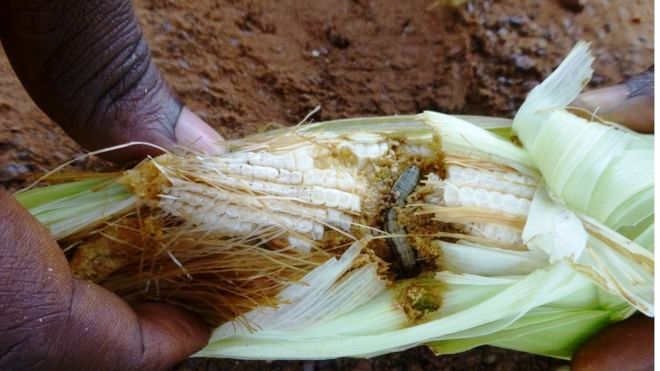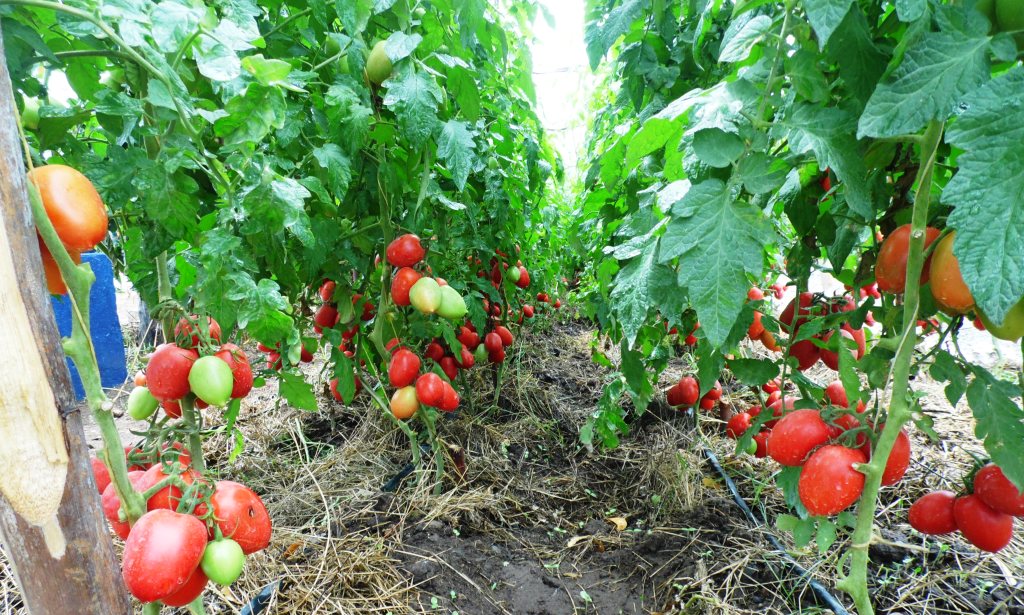
Kenya Biologics and icipe officers during the opening of the fruit fly control protein bait facility in Makuyu, Murang'a County. The bait could cut pest control cots by 70 per cent when it is reaches the market. Photo by icipe.
Farmers could spend about 30 per cent of the current cost in controlling fruit flies with the opening of the International Centres of Insect Physiology and Ecology (ICIPE) the soft protein bait manufacturing plant in Murang’a County.
Importing of pesticides and other control equipment increases the cost, which is passed on to the farmers.
But with the Fruitfly Mania manufacturing plant, which has been set up in Makuyu, the cost of the pest control media could drop by up to 70 per cent, icipe head of African Fruit Fly Programme Dr Sunday Ekesi said.
One of the core ingredients in the pesticide is extracted from yeast, which is a byproduct from industrial manufactured brew.
Female fruit flies love feeding on proteins. That is why protein baits are laced with toxicants to kill the females after feeding, Dr Ekesi said.
Fruit flies can cause up to 100 per cent loss by laying eggs in the flesh of ripe or ripening fruits. The maggots start feeding on the flesh of the fruit, causing it to ripen, rot and drop prematurely. The fruits and vegetables that survive cannot be sold.
Mangoes, plums, pears, peaches, tomatoes, citrus, capsicum and egg plant are some of the victims of the fruit fly.
Trials for the Fruitfly Mania have been concluded and, therefore, the factory is moving into commercial production.
Some pheromone traps cost between Sh450 and Sh800. Synthetic chemical may be higher than this cost, also depending on the manufacturer and the quantity.
But if Sh800 is taken as the market cost of a 400ml frutfly pesticide, a similar quantity of the Fruitfly Mania could cost about Sh240.
The Makuyu plant can produce 2,000 litres per day, which is sufficient in meeting the demand of the more than 229,000 families depending on mangoes.
READ ALSO: Fruit farmers eliminating fruit flies with Cera Trap
READ ALSO: Mango farmers use plastic bottles to fight fruit flies
RED ALSO: Tomato farmer lights lantern at night to trap more fruit flies
This biochemical method complements the research organisation’s integrated pest management pheromone trap for the mango fruit flies.
The use of sex lures separates males from mating with females, therefore, reducing population growth.
Heavy application of synthetic pesticides reduce chances of exporting the fruits to the well paying markets like the European Union, which have set limits for chemical residues in agro-products.
Synthetic chemicals also kill other friendly components of the ecosystems like bees which are key in pollination.
Write comment (0 Comments)
















